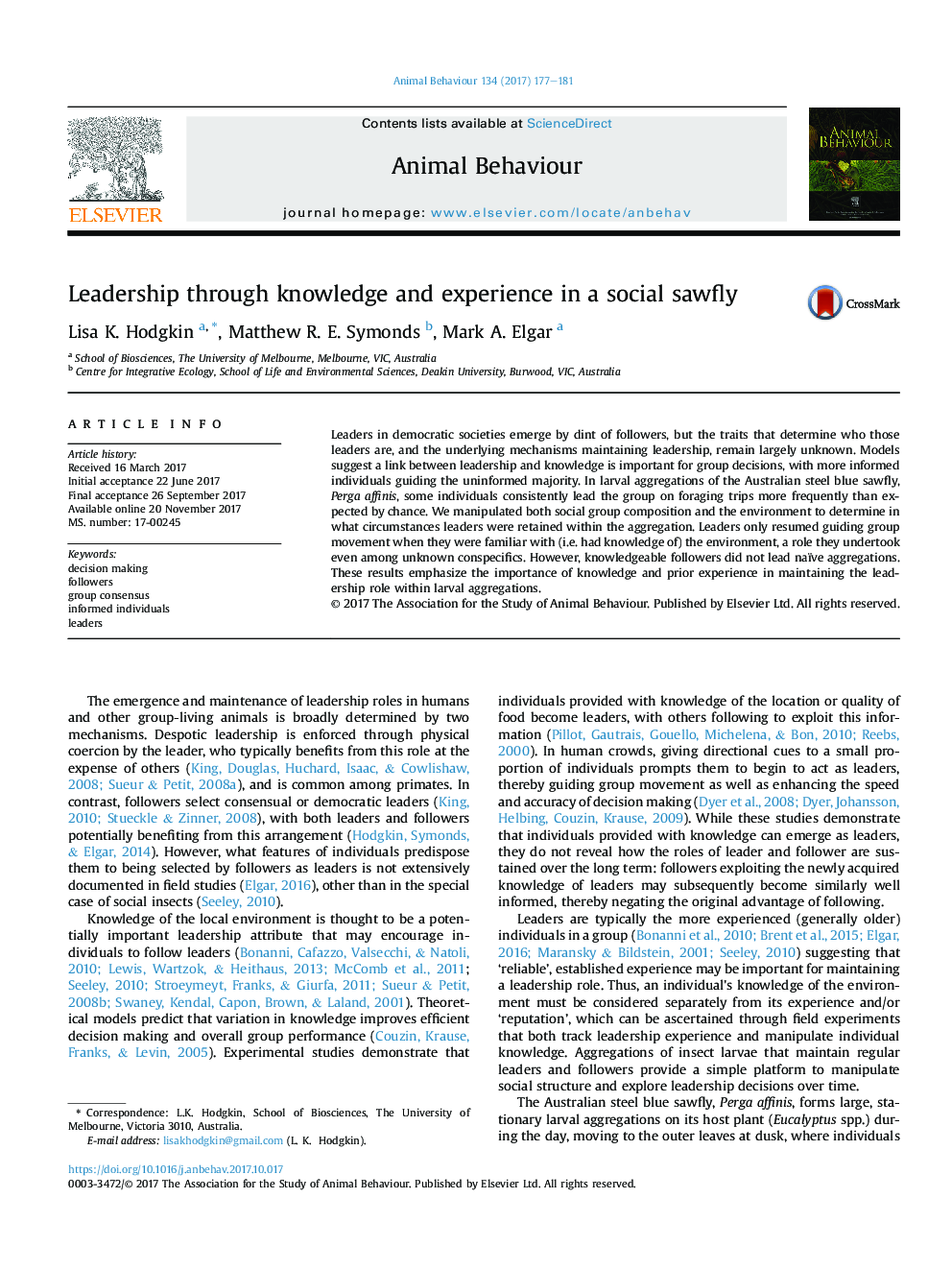| Article ID | Journal | Published Year | Pages | File Type |
|---|---|---|---|---|
| 8488796 | Animal Behaviour | 2017 | 5 Pages |
Abstract
Leaders in democratic societies emerge by dint of followers, but the traits that determine who those leaders are, and the underlying mechanisms maintaining leadership, remain largely unknown. Models suggest a link between leadership and knowledge is important for group decisions, with more informed individuals guiding the uninformed majority. In larval aggregations of the Australian steel blue sawfly, Perga affinis, some individuals consistently lead the group on foraging trips more frequently than expected by chance. We manipulated both social group composition and the environment to determine in what circumstances leaders were retained within the aggregation. Leaders only resumed guiding group movement when they were familiar with (i.e. had knowledge of) the environment, a role they undertook even among unknown conspecifics. However, knowledgeable followers did not lead naïve aggregations. These results emphasize the importance of knowledge and prior experience in maintaining the leadership role within larval aggregations.
Related Topics
Life Sciences
Agricultural and Biological Sciences
Animal Science and Zoology
Authors
Lisa K. Hodgkin, Matthew R.E. Symonds, Mark A. Elgar,
